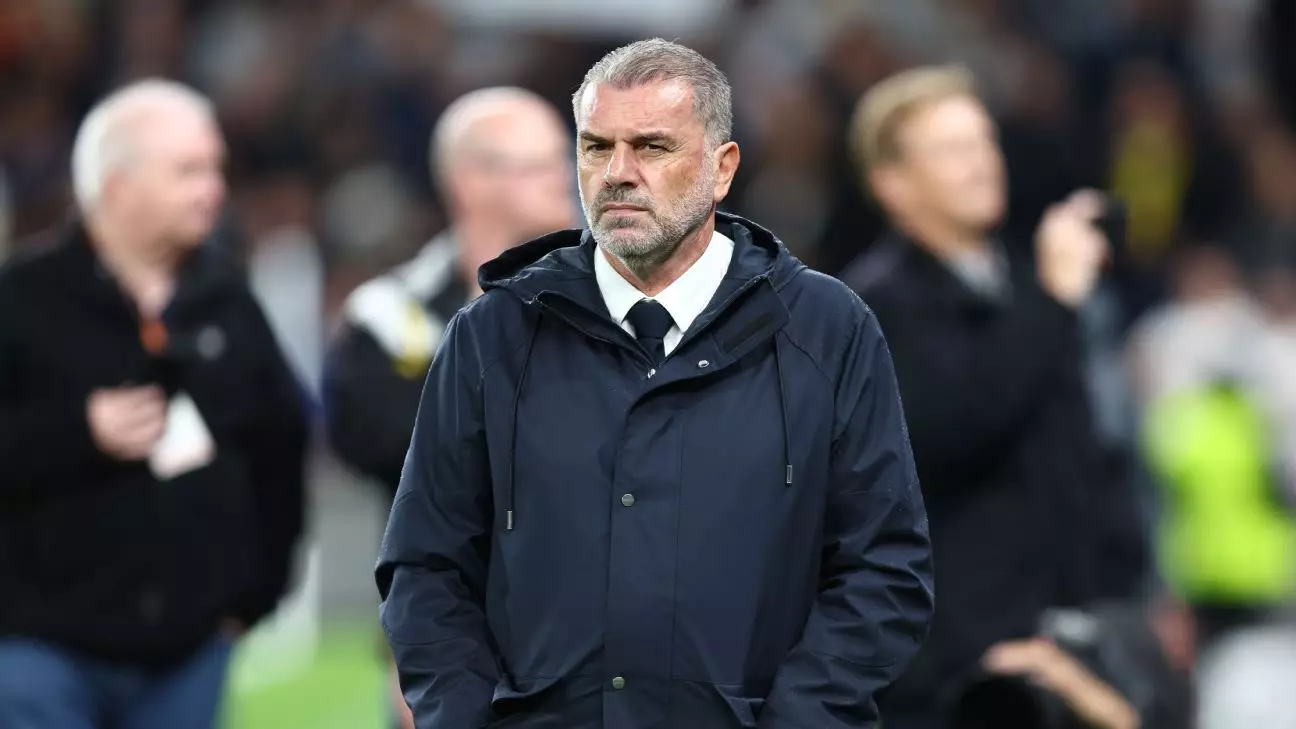As the Premier League continues to captivate fans with its unpredictable nature, the pressures faced by managers grow even more pronounced. Recent comments from Tottenham Hotspur’s coach, Ange Postecoglou, regarding Erik ten Hag’s tenure at Manchester United shed light on the intricate dynamics of leadership in top-flight football.
In the bustling world of English football, the spotlight rarely dims. Postecoglou’s acknowledgment of Ten Hag’s “great job” at Old Trafford is telling of the relentless scrutiny that accompanies managerial roles in the Premier League. Ten Hag has faced criticism despite his success in securing two trophies since taking charge in 2022. Postecoglou highlights the precarious nature of managerial careers, stating that “there’s always some manager under pressure.”
This observation reflects a broader truth in football; the fate of a manager often hinges on the club’s immediate results rather than long-term progress. With Manchester United finishing eighth last season—their worst performance in the Premier League era—Ten Hag has had to navigate choppy waters amid expectations for excellence. Such outcomes can provoke discontent among fans, leading to calls for managerial changes even when the framework for success appears to be in place.
Postecoglou reveals valuable insights into the psyche of managers. The pressures associated with the job can be likened to a “spinning board” from which the management position can make an unpredictable landing. Even successful managers like Ten Hag can’t escape the ire of critics, with each lackluster performance feeding into a narrative of potential failure. This inconsistency in how teams are evaluated, especially regarding a manager’s ability to maintain squad morale and performance levels, highlights the often irrational expectations that are set.
This reflects a significant shift in football culture, where demands for immediate wins overshadow the importance of development and strategic planning. Postecoglou’s recognition of Ten Hag’s achievements—capturing domestic silverware—emphasizes the duality of success and pressure in modern football management. Winning trophies, while essential, is often just the beginning of a manager’s expectations.
As Tottenham prepares to visit United, both teams find themselves in the middle of the league table, eager to change their trajectories. The stakes are high for each side, and Spurs’ recent form includes a solid victory in the Europa League. However, questions loom over player fitness, particularly regarding Son Heung-min, whose potential absence could significantly impact the team’s strategy against a formidable United side.
Postecoglou’s approach to squad depth and injury management is critical at this stage. With key players like Richarlison unavailable, the reliance on young talent like Mikey Moore becomes paramount. The embrace of academy products not only reflects a club’s commitment to youth development but also serves as a way to mitigate the pressures of injury crises.
Giving a chance to a 17-year-old in a high-stakes match is a gamble that underscores Postecoglou’s willingness to embrace change while fostering resilience within the squad. It showcases the balance that modern managers must maintain between immediate results and future growth.
As teams vie for points and pride on the pitch, the narrative surrounding managerial positions serves as a reminder of the fragile nature of success in football. Managers like Ten Hag and Postecoglou face unique challenges that require balancing short-term wins with long-term aspirations. The culture of criticism can make the role feel like a precarious tightrope walk—one slip, and the job could be on the line.
Postecoglou’s thoughts shed light on the complexities of management in football, an arena where pressure is intrinsic and outcomes are as unpredictable as league standings. As Spurs and United prepare for their clash, the underlying tensions of expectation and performance will undoubtedly be felt, not just on the pitch but in the hearts and minds of those at the helm.

